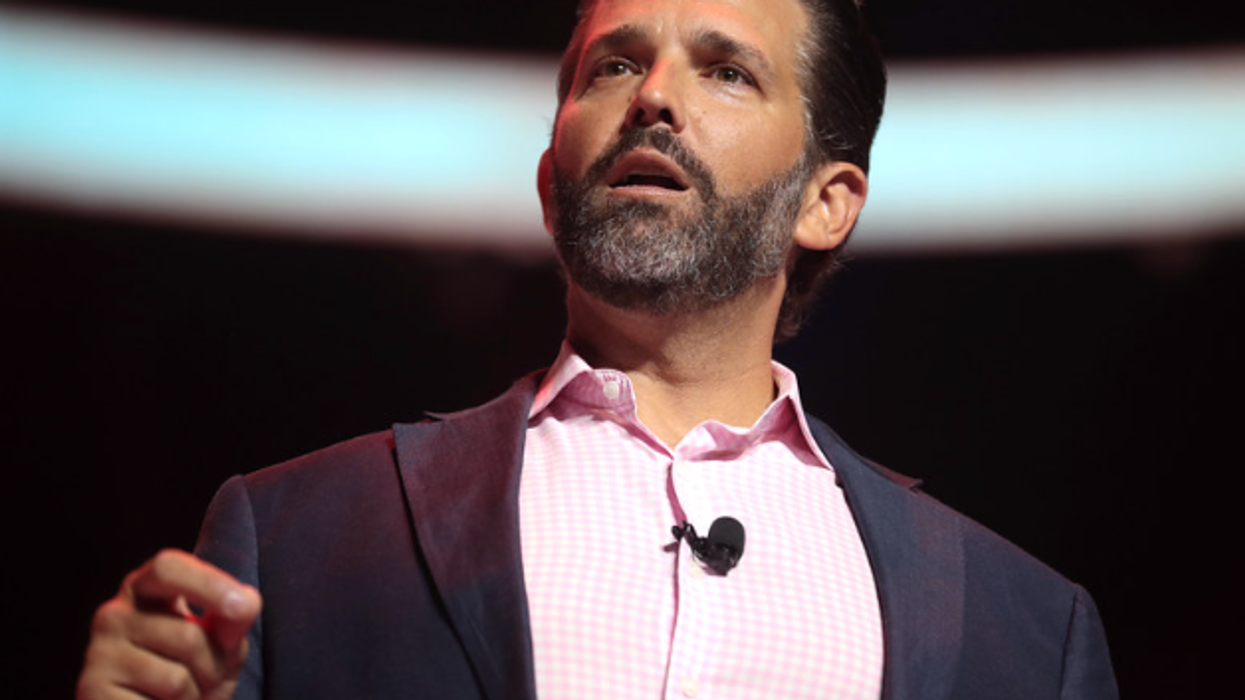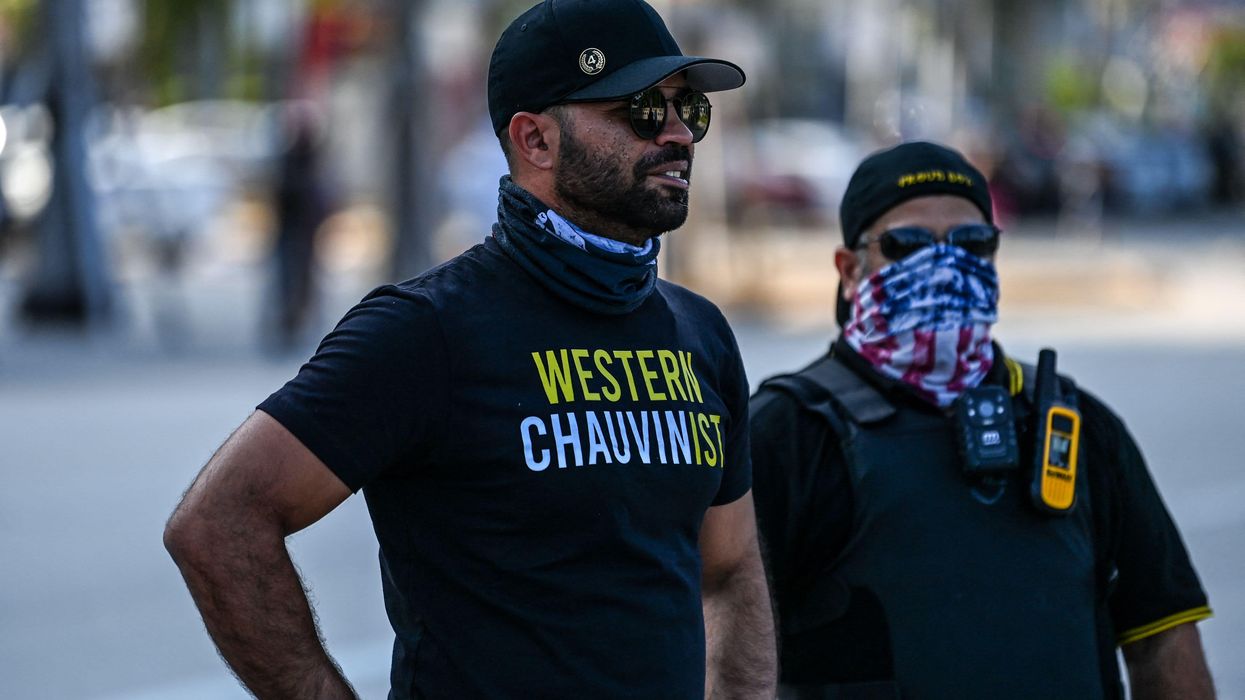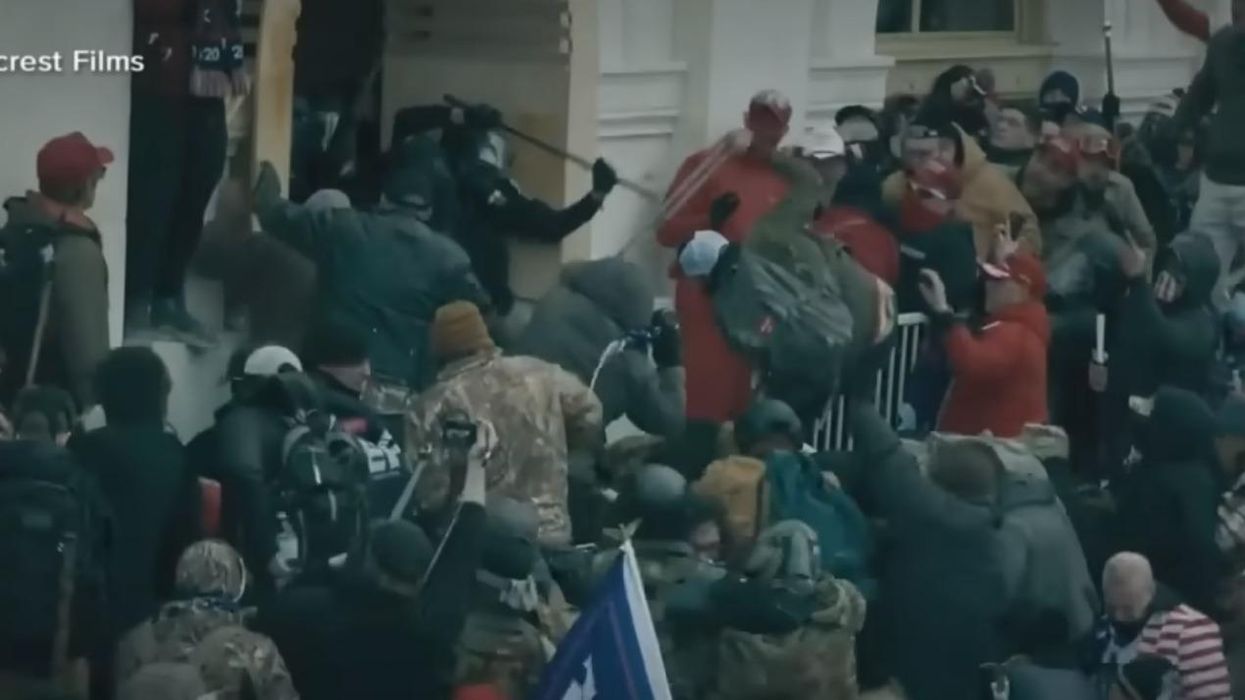Biden Used Autopen, But How Many January 6 Pardons Did Trump Fail To Sign At All?
The Republican-led House Oversight Committee claimed that former President Joe Biden’s executive actions and pardons issued by autopen should be declared “null and void” — bolstering a claim pushed by President Donald Trump and endorsed by right-wing media. Meanwhile, multiple people Trump pardoned for charges related to January 6 said in podcast appearances earlier this year that their pardons didn’t include Trump's signature at all.
On October 28, the House Oversight Committee released a report on Biden’s mental fitness when he issued actions signed by autopen, claiming that Biden “experienced significant mental and physical decline during his presidency,” and thus Attorney General Pam Bondi should review whether Biden’s pardons are legitimate.
Oversight Chairman James Comer claimed that the autopen actions should be “null and void.” ABC News noted that “Comer’s comments echo some of President Donald Trump's remarks about Biden’s use of autopen -- including saying that the pardons Biden approved should be voided because they were signed using an autopen.”
Trump’s claim had also spread widely in right-wing media.
However, on the May 14 edition of the Bobby Pickles Podcast, Troy Garrett — who pleaded guilty in December 2024 to a felony count related to his conduct at the U.S. Capitol on January 6, 2021, and was reportedly a recipient of one of Trump’s mass pardons of January 6 participants — said that his pardon has no signature at all.

Speaking with host Robert Piccirillo (also known as “Bobby Pickles”), Garrett said in response to Trump’s claim about Biden and the autopen, “You didn’t even autopen my pardon, bro. You didn’t even, like, spit on it,” adding, “You didn’t even sign mine, bro. So what are you talking about, bro? What are you talking about, Trump?”
Piccirillo also noted that he previously interviewed Gina Bisignano, a reported recipient of one of Trump’s January 6-related pardons, and “nobody signed her pardon either.” Bisignano was convicted, but not formally sentenced, for some federal charges for participating at the protest at the Capitol on January 6. During her appearance, she showed her pardon on screen, and it did not appear to have any signature on it.

ROBERT PICCIRILLO (HOST): You were pardoned, right? You received a pardon?
GINA BISIGNANO (GUEST): Yes I was. Hold on, let me show it to you. Robert, nothing could be worse. OK? This is my pardon. Nothing could be worse.
PICCIRILLO: Did Trump sign the pardon?
BISIGNANO: I don’t think he did. Right?
PICCIRILLO: Interesting.
BISIGNANO: No — I know. I wanted a signature.
PICCIRILLO: I know. That’s actually — I’m going to have a guy on probably next after you, and he wants to talk about why he received a pardon and there are no signatures on the pardons. And he has, like, some kind of conspiracy about that. So that's why I was wondering if you’re kind of, you know —
BISIGNANO: No. I think it’s because it was so broad. Like, no.
During Garrett’s appearance, he and Piccirillo expressed concern that without the signature, the pardons may not be legally valid and could be voided by Democrats in the future.
“When Trump is out of office, and I don’t have a signed pardon, the Democrats … won’t be able to send me to prison,” Garrett said. “It’ll be past the statute of limitations. However, I was already found guilty in a court of law, convicted as a felon in a court of law, in the federal court of law, in Washington, D.C., of all places, of a felony. And so there’s nothing stopping them from saying, ‘He’s still a felon. He doesn’t get any guns. He can’t vote.’ There’s nothing stopping them.”
ROBERT PICCIRILLO (HOST): You had a gripe about Donald Trump not signing the pardons. That’s really why you wanted to get on today — you wanted to talk about that. And so you received a pardon —
TROY GARRETT (GUEST): Bro.
PICCIRILLO: Just like all these other people, 1,500 people received a pardon. I believe I received a pardon. Actually, I think my case, my case was just dismissed, so I don’t think I was actually technically pardoned. I was just — my case was dismissed. But you received a pardon. I just had Gina Bisignano on. She’s the Beverly Hills Insurrectionist. She was the one that was wearing Louboutin and Chanel boots and speaking out of the [inaudible]. She was leading the charge, getting everybody to go inside. Anyway —
GARRETT: I remember her.
PICCIRILLO: Nobody signed her pardon either. She just had the pardon. She just showed it to me right before you, and I said, “Is there a signature on that pardon?” She said, “Nope.”
GARRETT: How is that valid?
PICCIRILLO: I don’t know, TeeRoy. What do you think’s going on here? Huh?
GARRETT: Well, let’s concentrate real quick —
PICCIRILLO: Since I was not pardoned, can they come back after me? Because I was — because they just —
GARRETT: No, because your statute of limitations will, once Trump is out of office, will have reached its limitations. Me, however, I already pled guilty to a felony. I was already, what do you call it?
PICCIRILLO: Adjudicated guilty.
GARRETT: Yes, adjudicated guilty. At that point, you become a felon. I was just awaiting sentencing. So here’s what I fear. I mean, I was already proven guilty. I was already — I was awaiting sentencing. I was already a felon. At this point, I’m an ex-felon. However, there is nothing that I can — and you know me, bro. I do a lot of research on different things.
There is nothing that protects me from becoming a felon again in the future because he didn’t sign the pardons. Sure, my case was dropped. It was signed by my judge, Rudy Gutierrez or some shit [expletive], that an order of dismissal was signed by my judge.
PICCIRILLO: Oh my God, she used that word twice or three times in the last interview. I’m going to do a lot of bleeping.
GARRETT: But I was already convicted. So, to me, it seems like very uncertain, very unsure about this pardon.
You know, Trump brings up a lot of “Well, Biden autopenned his pardons.” Well, you didn’t even autopen my pardon, bro. You didn’t even, like, spit on it.
PICCIRILLO: Autopen?
GARRETT: Well, you know, Trump has tried to say that Biden’s pardons are invalid because they were all used with autopen. Well —
PICCIRILLO: Oh my God.
GARRETT: You didn’t even sign mine. You didn’t even sign mine, bro. So what are you talking about, bro? What are you talking about, Trump? My man, Trump. I’m supposed to turn myself into prison on May 6, which is, like, I don’t know, 10 days from today. I was supposed to go into prison for five years, 10 days from today.
PICCIRILLO: You’re still supposed to? No.
GARRETT: No, no, no, no. I was supposed to. I was supposed to.
PICCIRILLO: Right.
GARRETT: But the pardon that keeps me out of prison hasn’t been signed by the president.
PICCIRILLO: Is that the deal you took, five years?
GARRETT: Well, I didn’t get a deal, Bobby. I got charged.
PICCIRILLO: You pled the one, to one felony, but that was carrying a weight of five years in prison.
GARRETT: Yes.
PICCIRILLO: You’re getting ready to go do a five-year bid just now? Wow.
GARRETT: Yeah. And the judge told me in court, you know, “I could sentence you to less, but you know you’re looking at five years. The prosecution wanted two and a half, but I can give you a full five. Do you understand that, Mr. Garrett?” “Yes, your honor. I understand that.”
And, you know, so, May 6, I was supposed to go to sentencing and to learn my fate. And, so, but, so what I’m getting at here is that when Trump is out of office, and I don’t have a signed pardon, the Democrats —
PICCIRILLO: We are fucked.
GARRETT: Yeah. The Democrats should be able to — I will not be able to be able to — they won’t be able to send me to prison. It’ll be past the statute of limitations. However, I was already found guilty in a court of law, convicted as a felon in a court of law, in the federal court of law, in Washington, D.C., of all places, of a felony. And so there’s nothing stopping them from saying, “He’s still a felon. He doesn’t get any guns. He can’t vote.” There’s nothing stopping them.
As far as I know, I’m still a felon. I can’t vote because my pardon was not signed.
PICCIRILLO: Wow. That is kind of crazy when you think about it.












